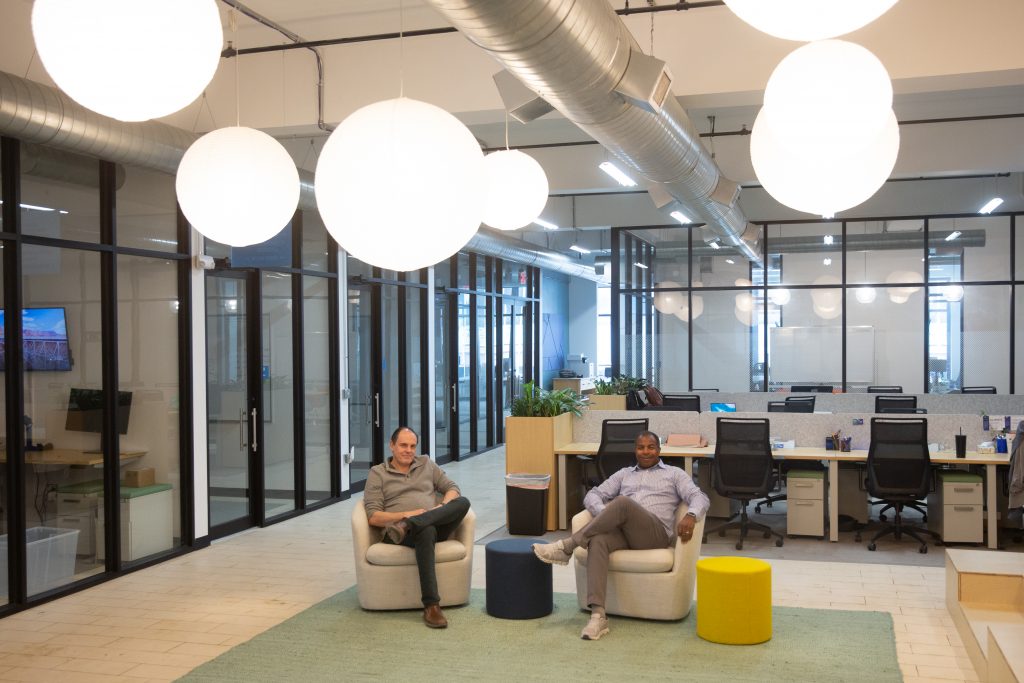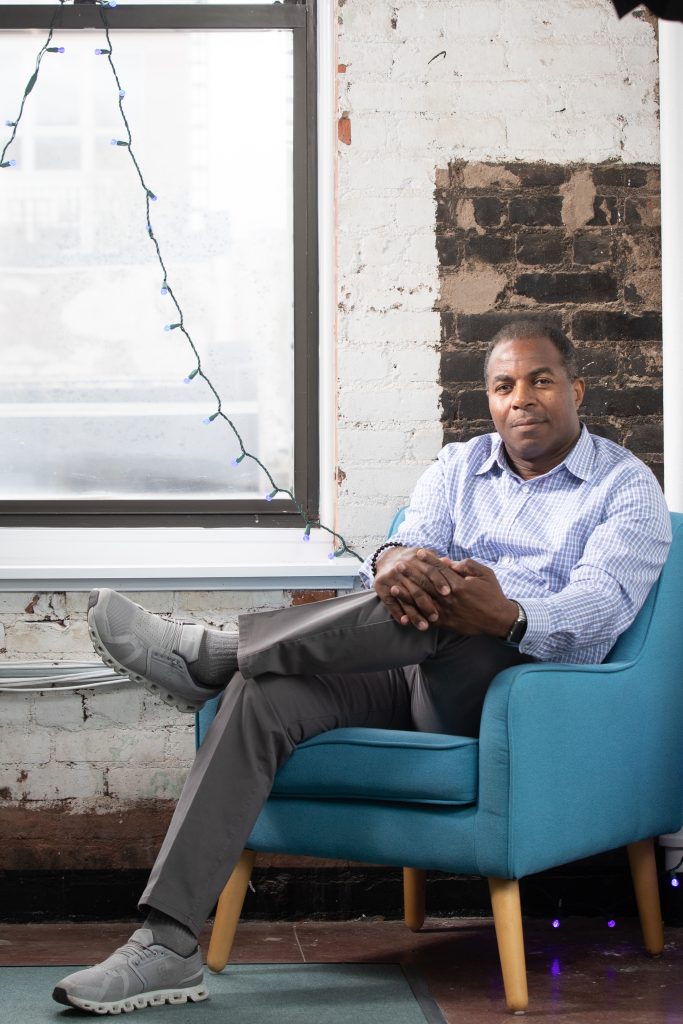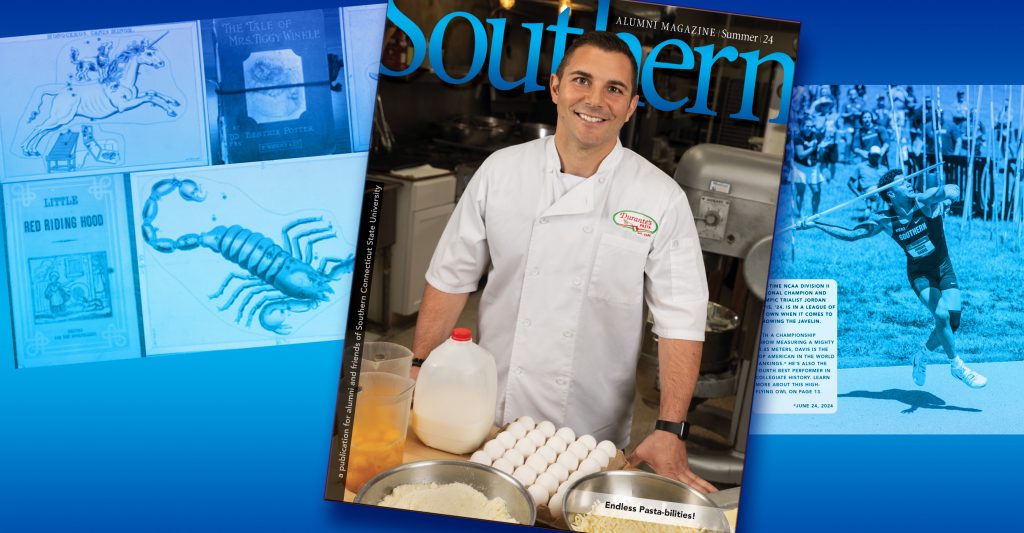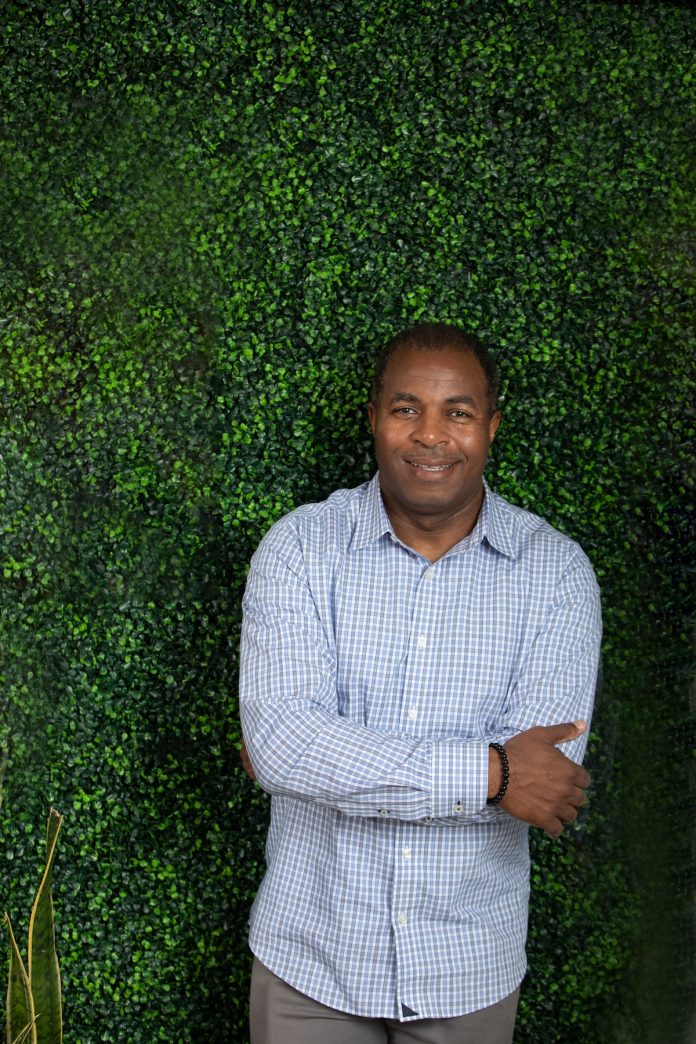LONNIE GARRIS III’S EDUCATION AT SOUTHERN started long before he matriculated as a student. He frequented the campus as a child with his mother, the late Delores Garris. She was a librarian at the university in the ’70s and ’80s, and sometimes took him with her to work during his summer vacations. His father — Lonnie Garris Jr., 6th Yr. ’83 — held a doctorate in education and worked in the New Haven Public Schools system as a teacher and principal for 40 years. So, it’s not surprising that the family values education or that Garris ended up at Southern as an undergraduate.
He was also a “crosstown cadet,” enrolled in the ROTC program at the University of Connecticut, along with all ROTC students from around the state. His mentor there, an intelligence officer, helped him charter his course of study at Southern. He told Garris if he wanted to be an intelligence officer, he should major in political science, advice Garris followed that resulted in a bachelor’s degree and a 24-year career in the U.S. Air Force.
Now he’s working in the private sector as the co-founder and chief executive officer of Cool Amps Energy Solutions, a New Haven-based, hard-tech startup developing an environmentally friendly process for recycling lithium batteries.

Garris is also back at Southern, where he works on a part-time basis with students in the Industry Academic Fellowship Program, which is funded by the Werth Family Foundation. In this case, the students’ real-world assignments include lab testing and experimentation for Cool Amps through the Connecticut State Colleges and Universities Center for Nanotechnology, which is based at Southern.
“It’s a win-win situation,” says Garris. “The students are getting something out of it, and we are, too.”
The partnership is invaluable, notes Christine Caragianis Broadbridge, executive director of research and innovation at Southern. “Lonnie is an awesome resource given his technical and entrepreneurial expertise, innovative mindset, and willingness to generously share his time mentoring our students,” says Broadbridge, a professor of physics, who is also the director of the Center for Nanotechnology.
A CAREER IS LAUNCHED
After graduating from Southern, Garris spent nine years in the Air Force working in military intelligence. He left to work on Wall Street as a technical account manager for Merrill Lynch while remaining a member of the military Reserve. The morning of September 11, 2001, he stopped into a building in lower Manhattan to make a quick phone call on his way to a meeting. When he walked outside, it appeared to be snowing, with ash and bits of burning paper drifting through the sky. Garris had passed through the World Trade Center complex seven minutes before the first plane hit the north tower.

The 9/11 attack prompted him to return to active duty. Osama bin Laden and al-Qaida had been on his radar since they bombed the American embassies in Tanzania and Kenya in 1998. At the time, having reached the highest level of security clearance, Garris had access to highly sensitive information on foreign terrorists. He had researched bin Laden and knew a great deal about him. Knowing he could serve more purposefully within the military than outside it, Garris was spurred to go back.
“I had a valuable skill set, and the country could use it,” he says. “Intelligence officers were going to play a crucial role in finding and defeating who was behind the attack.”
He returned to the Scott Air Force Base in Illinois, which was responsible for the transfer of troops and equipment in Afghanistan. He then was promoted and sent to Langley Air Force Base in Virginia, as a member of the intelligence unit. There, he worked with drone pilots for the military’s premier intelligence surveillance and reconnaissance effort.
Knowing he wanted to return eventually to the private sector, Garris also completed an MBA at Webster University and later the Global Executive Leadership Program at the Yale School of Management.
His military career was marked by numerous high notes: Garris was elected the Air Force Intelligence Reserve (Field Grade) Officer of the Year in 2004 and rose to the rank of colonel before retiring from active duty in 2017. “Serving at that leadership level prepared me to transition to the private sector and go into business,” he says.
After a stint as chief information officer at Pluribus, a start-up that developed a personal security app, Garris and two others founded Cool Amps in 2021, when they saw an opportunity to develop a sustainable process for recycling lithium batteries. The current industry practice uses high heat and harsh chemicals to extract the metals that can be reused. Cool Amps’ proprietary process is 50 percent more sustainable, with two provisional patents for an extraction method that can recover batteries’ high-value metals while emitting fewer greenhouse gases.
Another positive outcome from Garris’ time in the military was meeting the woman he married, Kimberly Garris, a civil service physician who specializes in family practice. They have a 12-year-old son who attends the military prep school that General Douglas MacArthur attended though their son has declared he does not want to serve in the military himself.
Garris lives with his family in San Antonio, though he frequently commutes to New Haven in his role as CEO of Cool Amps and as an adjunct faculty member at Southern. Looking back on his own education, from his early days at Southern through his graduate work, he says it has all led to where he is today. “It prepared me to go into the entrepreneurial space I’m in now,” he says. ■
Read more from the summer 2024 issue of Southern Alumni Magazine



